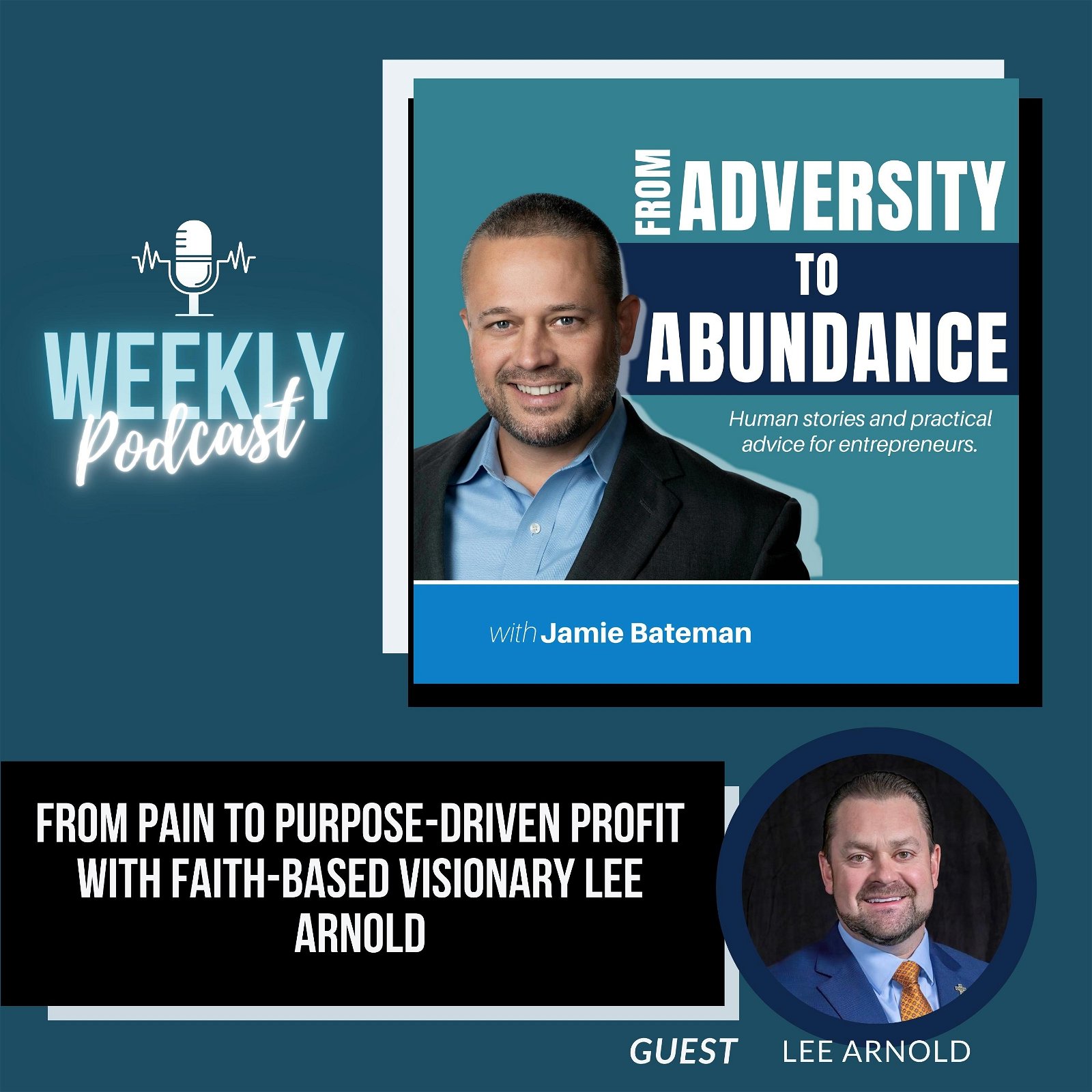Discover how real estate mogul Lee Arnold went from losing everything in the 2008 crash to restructuring his approach to real estate investing and building a purpose-driven business. But what you'll find surprising is the unexpected role faith played in his journey. Stay tuned to find out how he turned adversity into abundance and transformed his business with a powerful twist.
My special guest is Lee Arnold
Lee Arnold is the CEO of Secured Investment Corp, a seasoned real estate investor, developer, and bestselling author. With years of experience in perfecting real estate investing and private money lending, Lee offers valuable insights into the industry. Having faced the challenges of the 2008 real estate crash, he brings a unique perspective on restructuring and reprioritizing business approaches. Lee's journey from adversity to success showcases his resilience and determination, making him a valuable guest for real estate investors looking to learn from industry experiences.
"The biggest investment in business is people."
"If you love what you do, you'll never work a day in your life."
In this episode, you will be able to:
- Navigate the Shift: Understanding Real Estate Investing Before and After the 2008 Crash
- Ethical Entrepreneurship: Incorporating Faith into Your Business Strategy
- Accelerate Your Growth: Unlocking the Benefits of Mentorship in Entrepreneurship
- Talent is Key: Importance of Strategic Hiring and Talent Acquisition for Business Growth
- Diversify Your Income: Leveraging Real Estate Licensure for Additional Revenue Opportunities
Book and Resources
How to Win Friends & Influence People
Predictably Irrational, Revised and Expanded Edition
Connect with Lee Arnold
WEBSITE: https://leearnoldsystem.com/lp/
LINKEDIN: https://www.linkedin.com/in/lee-arnold-ceo/
INSTAGRAM: https://www.instagram.com/leearnoldsystem/
FACEBOOK: https://www.facebook.com/SecuredInvestmentCorp
ATTENTION:
Introducing Haven Financial Services - your trusted partner for streamlined accounting, expert guidance, and tailored strategies. Let's unlock your business's full potential together.
Learn more: https://www.myfinancialhaven.com/jamiebateman/
—-
Unlock the secrets to a transformative life with “From Adversity to Abundance: Inspiring stories of Mental, Physical and Financial Transformation”. Buy your copy now and embark on a journey from challenges to triumphs!
AMAZON: https://www.amazon.com/dp/B0CGTWJY1D?ref_=pe_3052080_397514860
Connect with us
WEBSITE: https://www.adversity2abundance.com
Leave us a rating or review: https://www.adversity2abundance.com/reviews/new/ or here
Got comments, feedback or suggestions? We’d love to hear it! https://www.adversity2abundance.com/contact/
FACEBOOK: https://www.facebook.com/profile.php?id=100089126144055
INSTAGRAM: https://www.instagram.com/adversitytoabundancepodcast/
LINKEDIN: https://www.linkedin.com/company/89949391/admin/feed/posts/
YOUTUBE: https://www.youtube.com/@FromAdversity2AbundancePodcast
Connect with Jamie
BOOK: From Adversity to Abundance: Inspiring Stories of Mental, Physical, and Financial Transformation
LINKEDIN: https://www.linkedin.com/in/jamie-bateman-5359a811/
TWITTER: https://twitter.com/batemanjames

